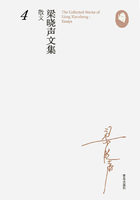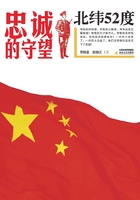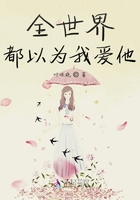Madame Hubieres,trembling with anguish,spoke of the future of their child,of his happiness,and of the money which he could give them later.
The peasant asked,“This pension of twelve hundred francs,will it be promised before a lawyer?”
M.Hubieres responded,“Why,certainly,beginning with tomor—row.”
The woman,who was thinking it over,continued,“A hundred francs a month is not enough to pay for depriving US of the child.That child would be working in a few years;we must have a hundred and twenty francs.”
Tapping her foot with impatience,Madame Hubieres granted it at once,and,as she wished to CalTy off the child with her,she gave a hun—dred francs extra,as a present,while her husband drew up a paper.And the young woman,radiant,carried off the howling brat,as one carries a—way a wished—for knick—knack from a shop.
The Tuvaches,from their door,watched her departure,silent,seri—OUS,perhaps regretting their refusal.
Nothing more was heard of little Jean Vallin.The parents went to the lawyer every month to collect their hundred and twenty francs.They had quarrelled with their neighbors,because Mother Tuvache grossly insultedthem,continually,repeating from door to door that one must be unnaturalto sell one’S child;that it was horrible,disgusting,bribery.Sometimesshe would take her Chariot in her arms,ostentatiously exclaiming,as if heunderstood,
“I didn’t sell you.I didn’t!I didn’t sell you,my little one!I’mnot rich.but I don’t sell my children!”
The Vallins lived comfortably,thanks to the pension.That was the cause of the unappeasable fury of the Tuvaches,who had remained miser—ably poor.Their eldest went away to serve his time in the army;Chariot alone remained tO labor with his old father,to support the mother and two younger sisters.
He had reached twenty—one years when,one morning,a brilliant carriage stopped before the two cottages.A young gentleman,with a gold watch—chain,got out,giving his hand to an aged,white—haired lady·The Old lady said to him,“It is there,my child,at the second house.”And he entered the house of the Vallins as though at home.
The old mother was washing her aprons;the infirm father slumbered at the chimney—comer.Both raised their heads,and the young man said,
“Good—morning,papa;good morning,mamma!”
They both stood up。frightened!In a flutter,the peasant woman dropped her soap into the water,and stammered,
“Is it you,my child?Is it you,my child?”
He took her in his arms and hugged her,repeating,“Good morning,mamma.”while the old man,all a tremble,said,in his calm tone which he never lost.“Here you are,back again,Jean,”as if he had just seen him a month ago. they had got to know one another again,the palents wighed t0 take their boy out in the neighborhood,and show him.They took him to the mayor,to the deputy,to the cure,and to the schoolmaster.
Chariot,standing on the threshold of his cottage,watched him pass.In the evening,at supper,he said to the old people,“You must have been stupid to let the Vallins’boy be taken.”
The mother answered,obstinately,“1 wouldn’t sell my child.”
The father remained silent.The son continued,“It is unfortunate to be sacrificed like that.”
Then Father Tuvache,in an angry tone,said,“Are you going to re—proach us for having kept you?”And the young man said,“brutally,”
“Yes,I reproach you for having been such fools.Parents like you make the misfortune of their children.You deserve that I should leave you.”The old woman wept over her plate.She moaned,as she swal—lowed the spoonfuls of soup,half of which she spilled:“One may kill one’s self to bring up children!”
Then the boy said,roughly.“I’d rather not have been born than be what I alTl.V~rhen I saw the other,my heart stood still.I said to myself,‘See what I should have been now!”’He got up,“See here,I feel that 1 would do better not to stay here,because 1 would throw it up to you from morning till night,and 1 would make your life miserable.I’11 never for-give you for that!”
The two old people were silent,downcast,in tears.














